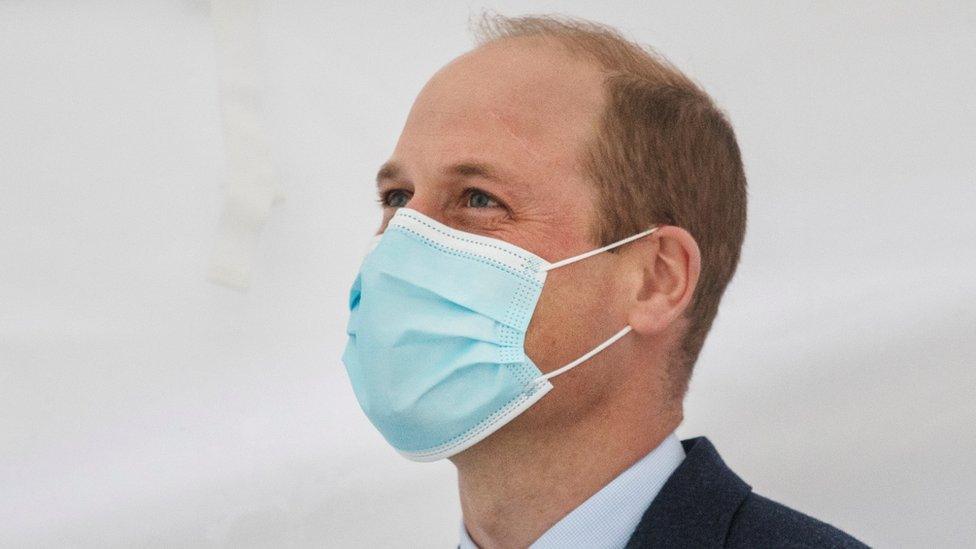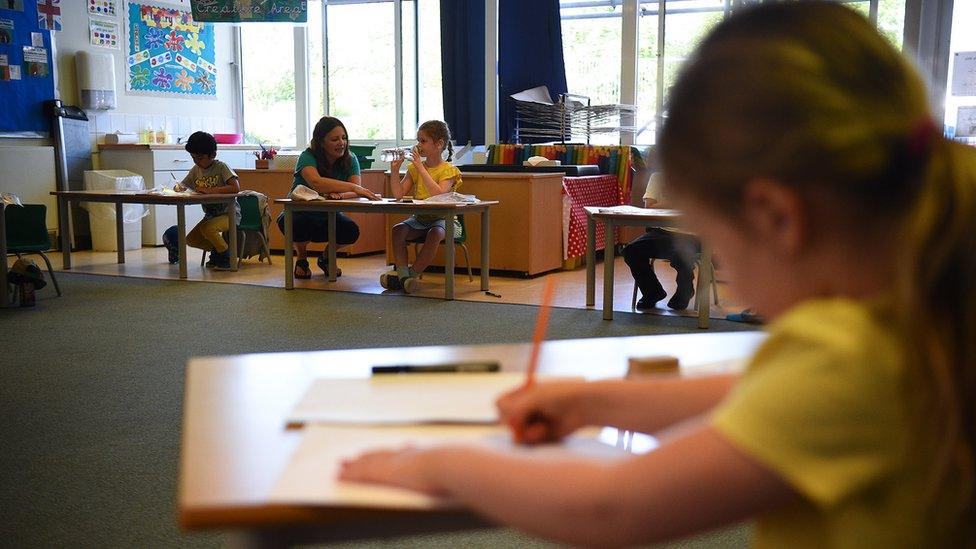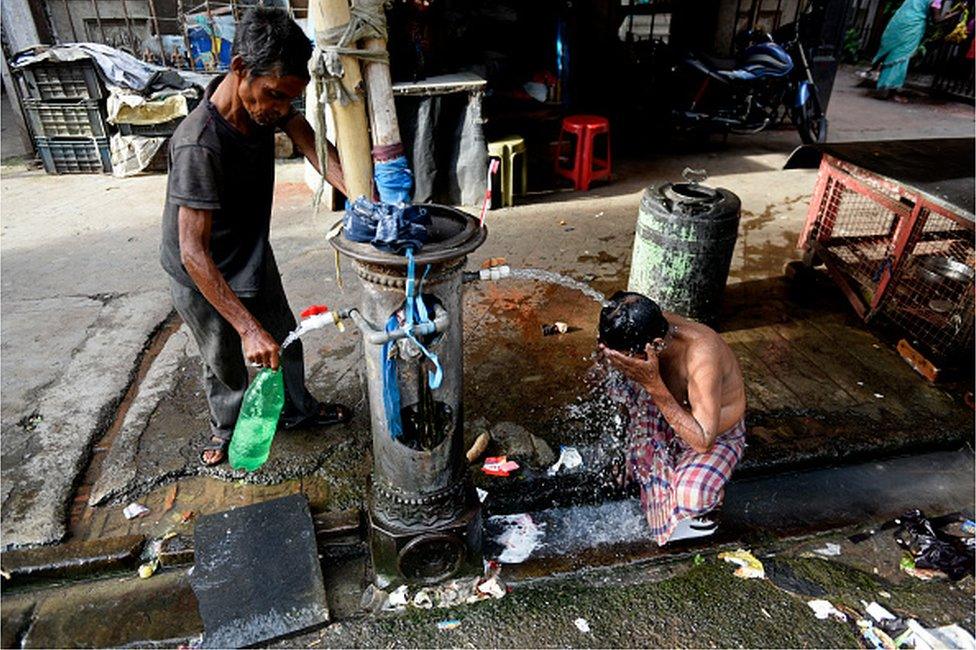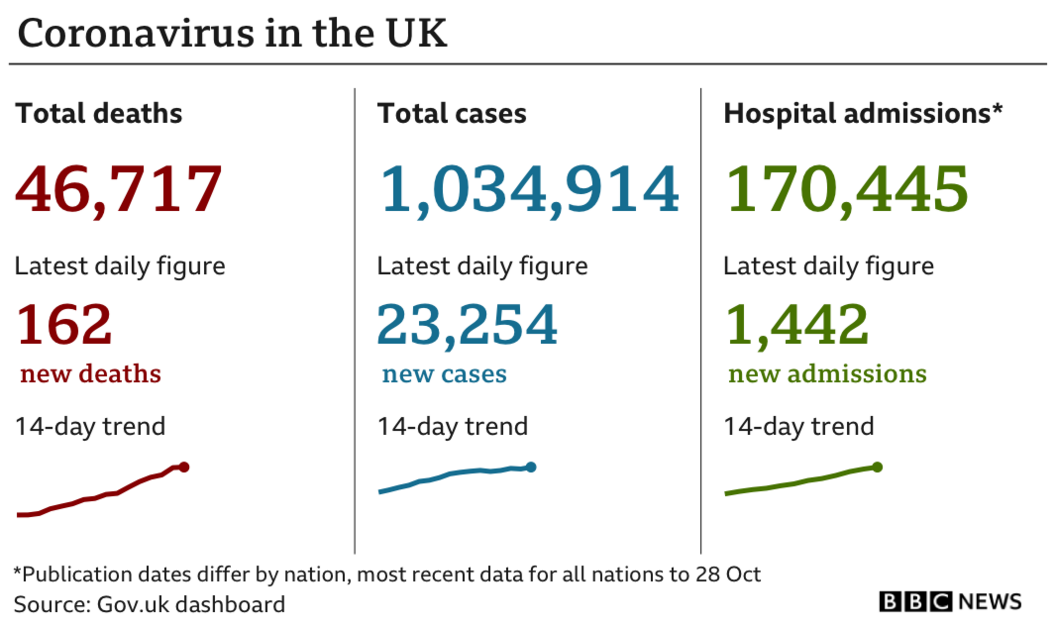Covid-19: Second lockdown, Duke of Cambridge and school catch-up scheme
- Published
Here are five things you need to know about the coronavirus pandemic this Monday morning. We'll have another update for you at 18:00 GMT.
1. 'No alternative' to England's second lockdown
Boris Johnson will tell MPs later that coronavirus deaths could be twice as high over the winter as they were in the spring unless he - and the whole country - acts now. He'll insist it was "right to try every possible option" at a regional level first, but nationwide action is now non-negotiable. Despite criticising the time it's taken to get to this point, Labour MPs are expected to vote in favour of the lockdown on Wednesday. Not all of Mr Johnson's own MPs will back it, though. Full details of the new restrictions are still to be published, but here's everything we know so far.
Prime Minister Boris Johnson: "Now is the time to take action"

2. Prince William 'tested positive in April'
Palace sources have told the BBC the Duke of Cambridge contracted Covid-19 earlier this year - around the same time as his father. The Sun newspaper, which first reported the story,, external said he was treated by palace doctors and isolated at the family home in Norfolk. BBC royal correspondent Jonny Dymond said the duke may have kept his diagnosis private to avoid alarming the nation. Kensington Palace has refused to comment officially.

Prince William continued to carry out telephone and video engagements during April

3. Scotland launches five-tier system of restrictions
So far, no areas have been designated tier four - the top level. The central belt and Dundee have been placed in tier three, while the Highlands, Western Isles, Moray, Orkney and Shetland are all in level one. See what that means in practice for the likes of schools and hospitality, and use the official postcode look-up, external to see the situation where you are. Meanwhile, Northern Ireland's schools reopen today, mid-way through a four-week national "circuit-breaker" lockdown. Wales continues its "firebreak" too, and the first minister is urging people to stick with it.


4. Catch-up scheme opens
From today, schools in England can begin enrolling pupils in a national scheme designed to provide catch-up tuition for those whose learning suffered most during the spring lockdown. Research suggests the gap between disadvantaged pupils and their more privileged counterparts has widened significantly. More than 15,000 tutors have been recruited and lessons will be 75% subsidised by the government. Education unions, though, say provision could and should have come from schools themselves, rather than external agencies.

Small group tuition has been shown to boost pupil attainment in schools

5. India's Covid conundrum
Research suggests people in low income countries may have higher immunity to Covid-19 because of exposure to various pathogens from childhood. Two papers have tried to explain why, despite poorer healthcare, hygiene and sanitation, countries like India have not seen death rates as high as richer nations. They suggest these apparent negatives could actually have saved lives. It's important to say, though, that other factors could also be at play - India's relatively young population, for example - and the research is yet to be peer reviewed.

Many Indians struggle to access clean water for bathing and drinking


And don't forget...
Find more information, advice and guides on our coronavirus page.
Plus, England's second lockdown comes with a reintroduction of the full furlough scheme across the UK. Find out who's eligible for it.


What questions do you have about coronavirus?
In some cases, your question will be published, displaying your name, age and location as you provide it, unless you state otherwise. Your contact details will never be published. Please ensure you have read our terms & conditions and privacy policy.
Use this form to ask your question:
If you are reading this page and can't see the form you will need to visit the mobile version of the BBC website to submit your question or send them via email to YourQuestions@bbc.co.uk, external. Please include your name, age and location with any question you send in.

THE NAKED SCIENTISTS: Why are people catching coronavirus on purpose?
BBC IPLAYER EXCLUSIVE: Would you like a sneak peek at the new series of His Dark Materials?
